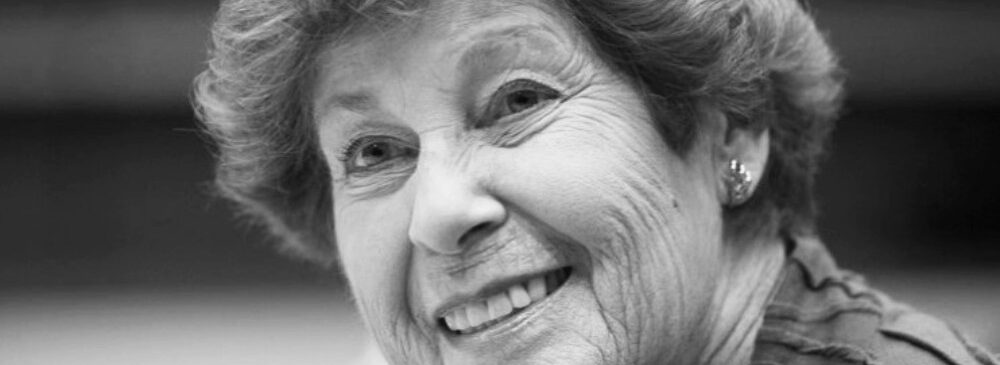In Memoriam Herta Griffel-Baitch (1933-2024)
Mar 5, 2024 | JMW News

The Jewish Museum Vienna mourns the passing of Herta Griffel-Baitch. She spent the early years of her life in Vienna’s Wohlmutstraße in the second district, yet memories of that time barely remained with her. However, she remembered one sentence from her mother until the end of her life: “It’s important that you are healthy, then maybe you can be selected as one of the children allowed to go to America.”
Her mother had tried until the last moment to secure a place for her daughter on a Kindertransport, and she succeeded: Herta left Vienna in November 1940 on the last Kindertransport. Getting a place on such a transport was difficult from the beginning, but with the outbreak of World War II in the fall of 1939, the intra-European Kindertransporte were halted.
The USA became the last hope, as they only accepted very few children. Organizing these trips became increasingly difficult as many countries imposed stricter entry regulations. The original plan was to send the children via Lisbon, but Portugal had just decided not to admit stateless individuals anymore, even for transit. Several children on the list, including Herta, were stateless. Therefore, the coordinators planned the journey to the USA via Russia and Japan. Shortly before departure, Portugal relented, and the Kindertransport could proceed as originally planned. The regulations for this transport were very specific; only orphans or half-orphans were allowed to travel.
Since her father had already lost his life in a forced labor camp, Herta Griffel met this requirement. Naturally, her mother had hoped to escape soon and follow her daughter. It was only several years after the end of the war that Herta learned about her mother’s murder on September 14, 1942, in Maly Trostinec.
Herta’s story was part of our exhibition: “Youth without a Home. Kindertransporte from Vienna.” In the course of our research, I was allowed to visit her in her later home in Baltimore and was warmly welcomed by her and her family. Since she was only seven years old at the time of the journey and had very few memories left, she could only tell me a little about it. But she told me how, years after the war, she received the last items her mother had packed for her in Vienna from a distant relative and how, through the work of the United States Holocaust Memorial Museum, she learned more and more about her childhood late in her life.
The USHMM became aware of her because it had acquired the estate of Gertrude Winter, a teacher at the Zwi Perez Chajes School. In it were children’s drawings with her name, which now revealed to Herta that she had spent her first year of school at this school.
Herta Griffel-Baitch no longer wanted to come to Vienna for the exhibition opening; the journey was too far for her. But two of her grandchildren came. For them, it was their first time in Vienna, and they set out to trace their grandmother’s footsteps. Just a few weeks ago, Asa Baitch received Austrian citizenship. When he asked his grandmother if she now wanted to apply for it as well, she replied: “They didn’t want me back then, so they won’t get me now either!”
That’s exactly how I had met Herta Griffel-Baitch back then: proud to have made her way, not forgetting what had happened to her. She not only shared her story with the Jewish Museum Vienna but also generously donated to our institution on the occasion of the exhibition. It was important to her that stories like hers were not forgotten. Although she had been robbed of so much at the beginning of her life, she was grateful for her life and her family when I had the privilege to meet her.
